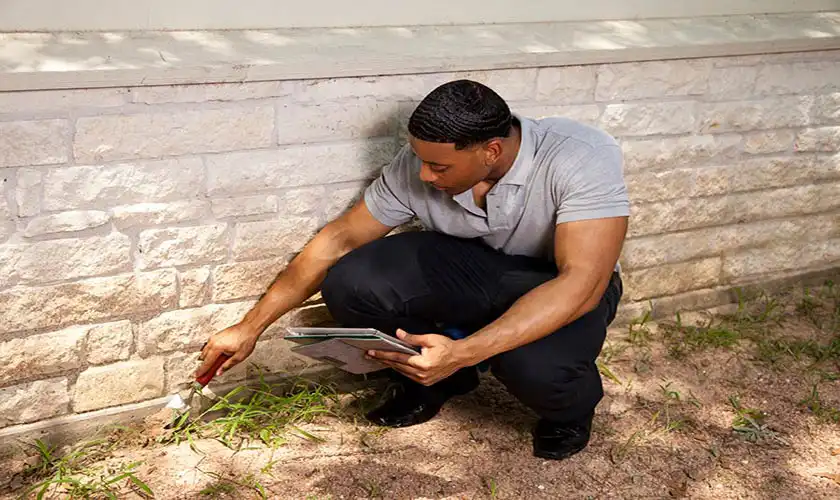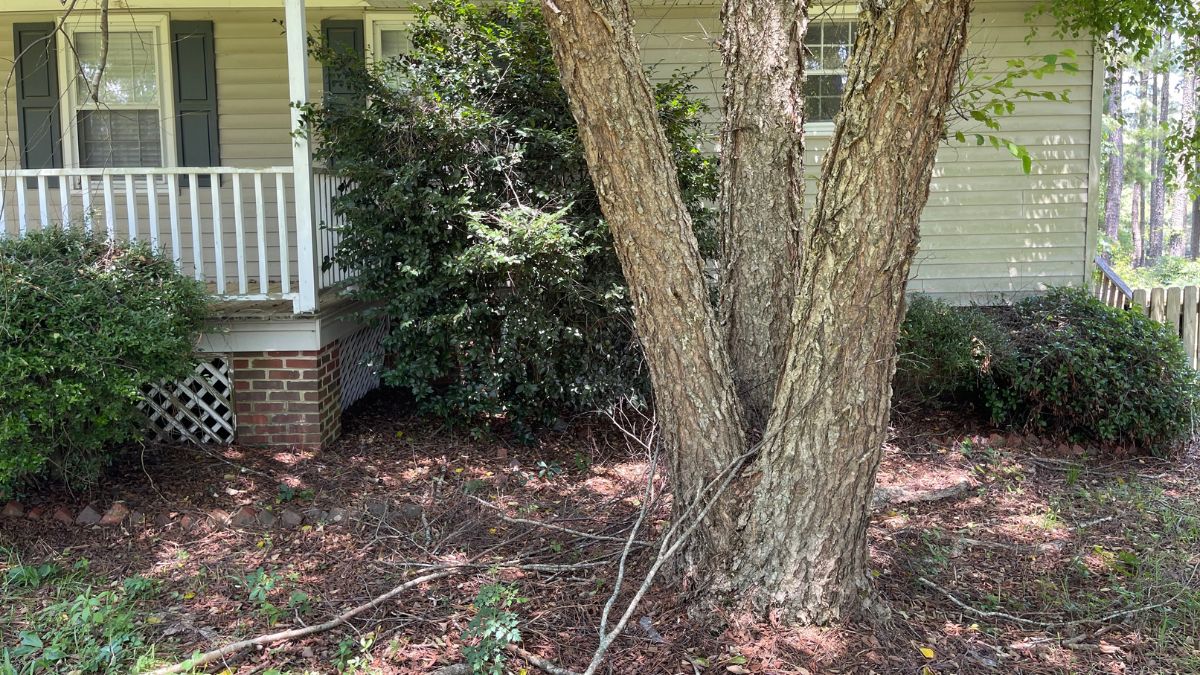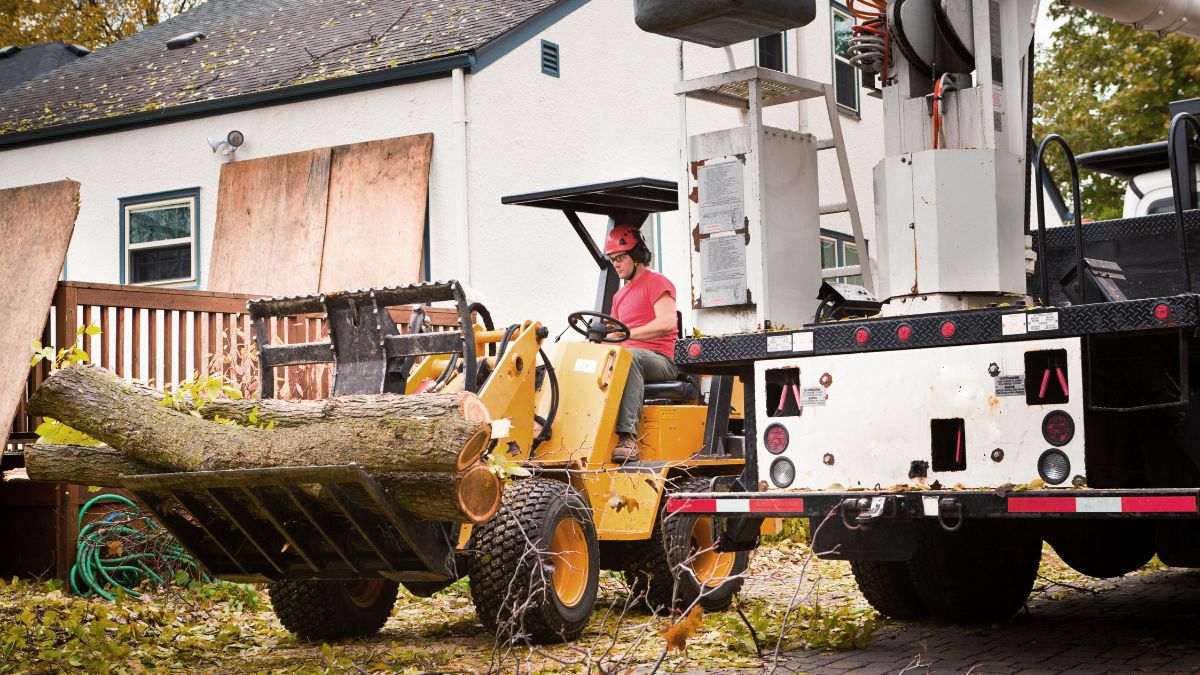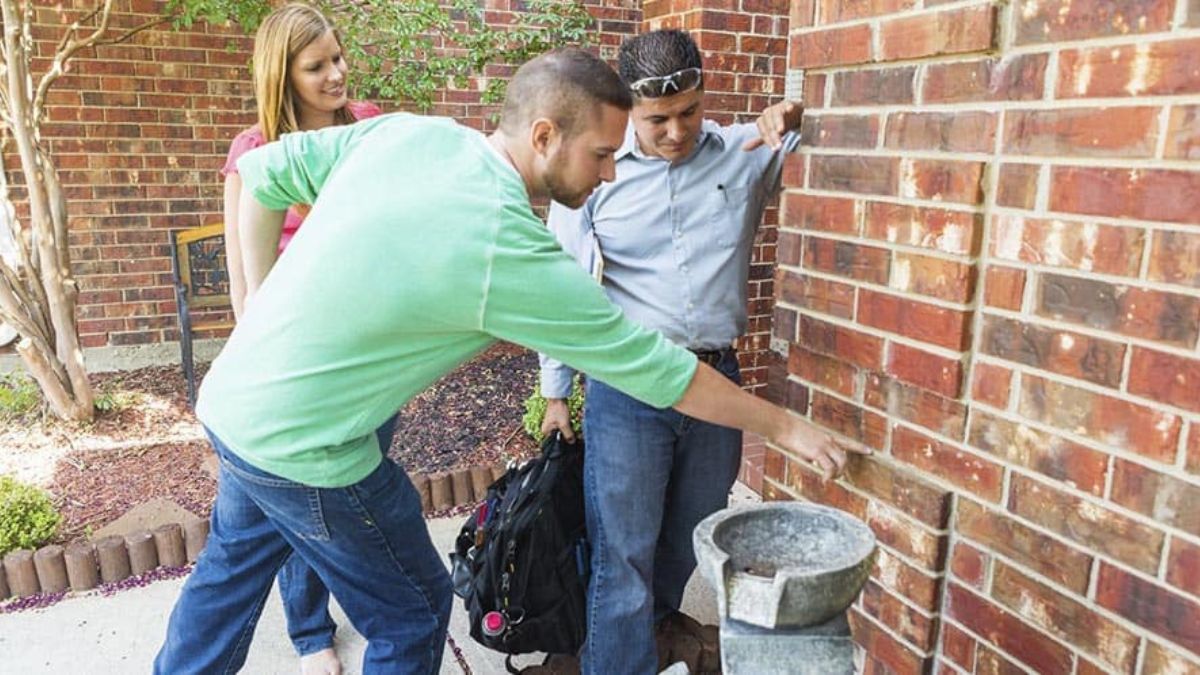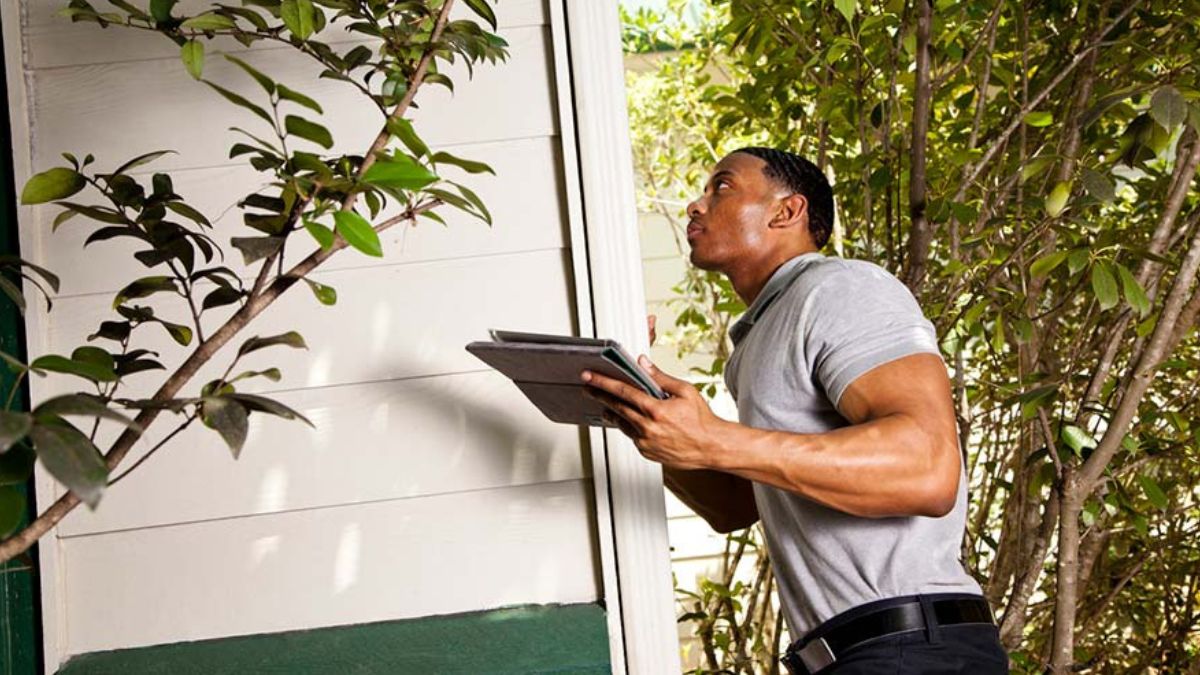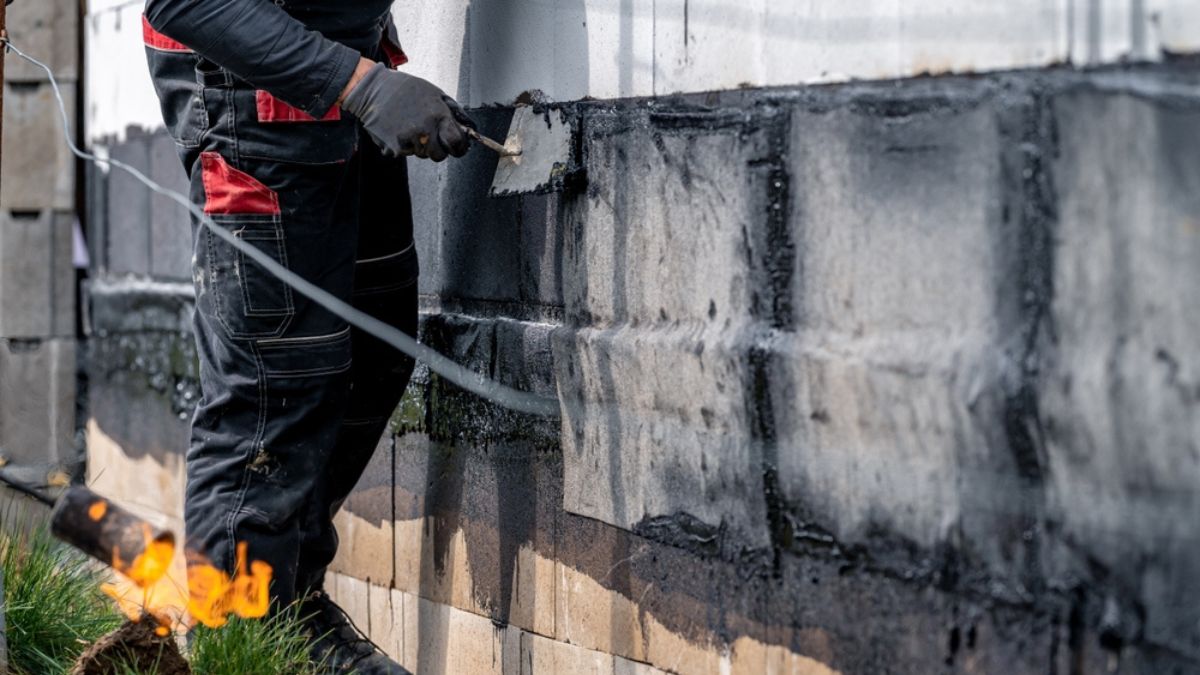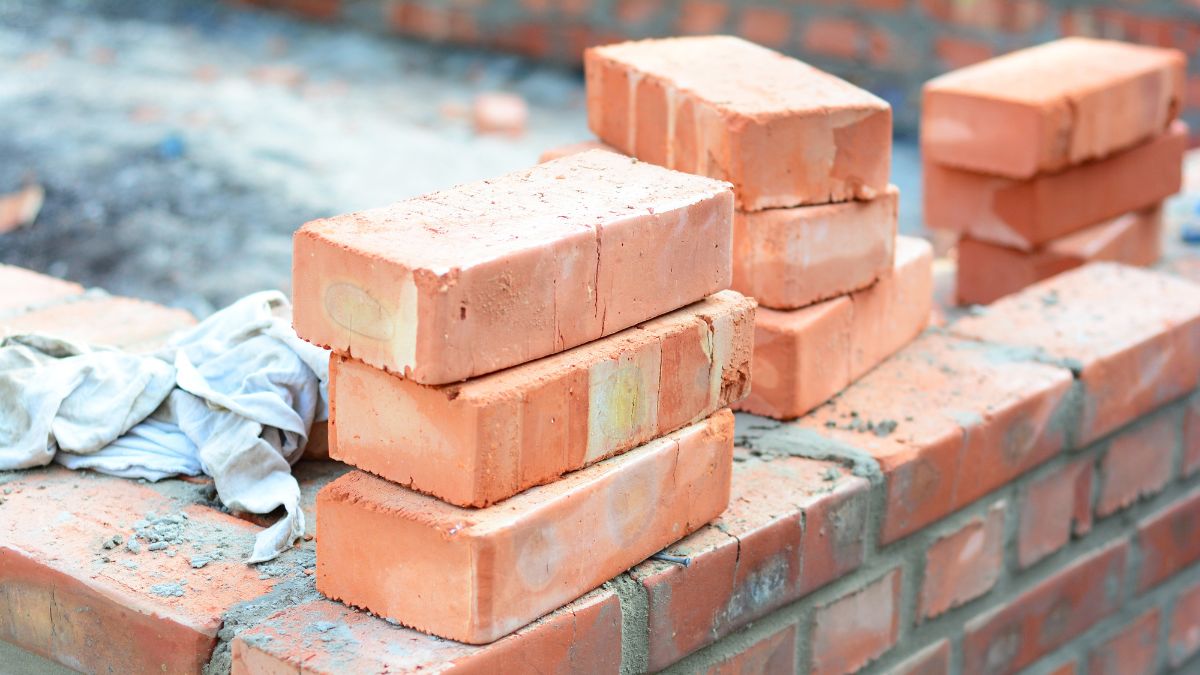Learn about the signs, causes, and impact of foundation issues on your house. Can a house collapse from foundation issues? Find out the answer to this crucial question and discover effective preventive measures.
We’ll examine methods to prevent future foundation problems through regular maintenance inspections, saving you time and money in costly repairs if an issue arises.
Foundation problems have the potential to result in significant structural damage and, in more severe instances, necessitate complete reconstruction of specific areas of your house. Disregarding foundation issues can have serious consequences and jeopardize the stability of your home.
Here are some things to keep in mind:
- Foundation issues can cause a house to collapse: Significant foundation problems pose a risk to the stability of your home, and a compromised foundation can potentially result in the entire house’s collapse.
- Neglecting foundation issues is unwise: Over time, significant foundation problems can worsen and risk your house’s structural integrity and personal safety. Therefore, it is essential to remain vigilant and address even minor issues promptly.
- Fixing foundation issues is important: Promptly addressing any foundation issues you observe is vital to prevent damage and maintain the stability of your home. It is crucial to take immediate action to resolve these problems.
- Foundation issues can take years to develop: Although a house can potentially collapse due to foundation problems, it typically takes a significant amount of time for an issue to progress to such a severe extent.
Get FREE quotes from local foundation repair contractors in your area today. Whether you need a pier replaced, basement waterproofing, or a full foundation replacement - We Can Help! All Contractors are screened, licensed, and insured.
| Key Takeaways |
|---|
| Foundation issues can lead to serious structural damage and pose a threat to the stability of your home. |
| Signs of foundation issues include cracks in walls, floors, and ceilings, uneven floors, and doors/windows that don’t close properly. |
| Causes of foundation issues can include soil movement and settlement, poor construction practices, and earthquakes. |
| Foundation issues can result in unsightly cracks, difficulty moving around due to uneven floors, and energy loss from improperly closing doors and windows. |
| Ignoring foundation issues can lead to more significant problems and costly repairs in the future. |
| Foundation issues, if left unaddressed, can potentially cause a house to collapse. |
| Regular inspection and maintenance and professional inspections are crucial for identifying and addressing foundation issues early on. |
| Preventive measures such as keeping gutters clean, maintaining proper drainage, trimming landscaping roots, and directing sprinklers away from the foundation can help prevent foundation problems. |
| To ensure proper evaluation and necessary repairs, seeking professional help and advice is essential when dealing with suspected foundation issues. |
| Taking proactive steps to address foundation issues will help maintain the safety and stability of your home for the long term. |
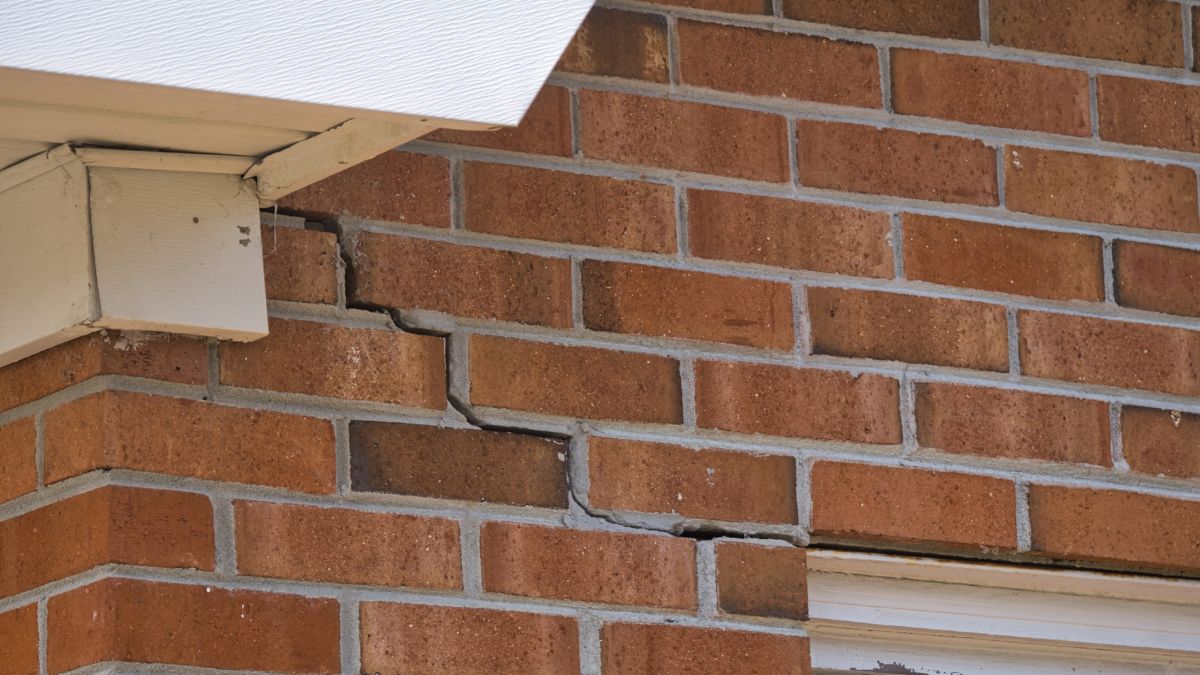
How Neglecting the Basics Could Lead to a House Collapse
When we think of a house, we imagine a sturdy structure that provides us safety and security. However, the foundation of a house is what makes it truly strong and durable.
The foundation is a support system for the entire house, ensuring it remains level and stable. But what happens when the foundation starts to fail? Are there warning signs that indicate potential issues?
Foundation Issues
Foundation issues are problems that occur within the base of the house that supports the structure. These issues can be caused by several factors, such as shifting soil, changes in temperature or moisture levels, or even poor construction practices.
Foundation problems can manifest in many ways, including cracks in walls and floors, uneven floors or doors, and windows that don’t close properly.
Homes at the highest risk of catastrophic foundation collapse include beachfront and hillside homes and those built on earthquake fault lines or unstable ground where sinkholes could form.
Every home can be subject to foundation issues, but most foundation problems happen slowly over years or even decades.
Importance of a Strong Foundation for a House
The importance of having a strong foundation cannot be overstated. A home is only as stable as its base allows it to be.
A sturdy foundation ensures that your home will stand firm against natural disasters such as earthquakes and storms while maintaining structural integrity over time. Furthermore, without proper support from its foundation, your home may develop structural issues and damage in other areas, such as walls, floors, or roofs, leading to thousands of dollars in repairs down the line.
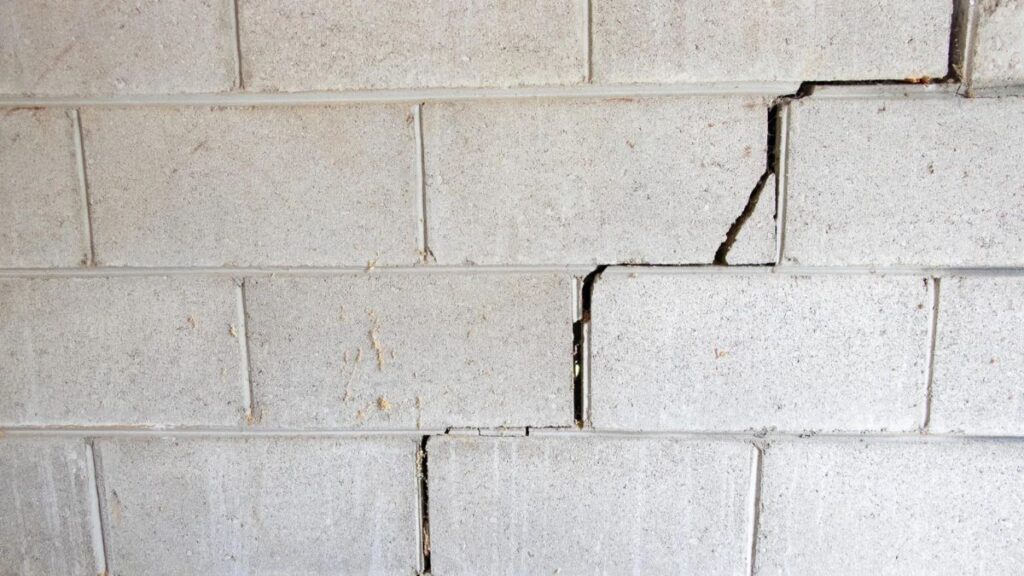
Signs of Foundation Issues
These primary signs of foundation problems are very important to look out for because they can cause serious damage to your home if left unchecked.
Cracks in Walls, Floors, and Ceilings
One of the most common signs of foundation issues is the appearance of cracks in the walls, floors, and ceilings. These cracks can vary in size from tiny hairline fractures to noticeable gaps that are wide enough to insert a finger.
They can appear anywhere in the house but are often found near doors and windows. Vertical cracks on brick exteriors from floor to ceiling or stair-step cracking are telltale signs of foundation issues.
Horizontal cracks may be due to pressure from expansive soil or a shifting foundation. It’s important to note that not all cracks indicate a foundation problem.
Small hairline cracks can occur naturally over time as a house settles. However, noticing new or widening cracks could indicate underlying issues with your home’s foundation.
Don’t Ignore Termite Damage
While termite damage occurs to wood, it can affect the foundation and lead to structural failure. Termite damage can be extensive and expensive if left untreated. In addition, some types of termite damage within walls, attics, and crawl spaces may not be visible until it’s too late.
Regular inspections and preventative treatments are the best way to protect your home from termite damage. Home inspectors can identify signs of existing or potential damage and advise on safeguarding your property. It’s important to take steps to protect your home against the threat of termite infestations before it’s too late.
Uneven Floors and Sloping Walls
Another sign that you may have foundation problems is uneven floors. You might notice that your floors feel unlevel when you walk on them or see that furniture doesn’t sit straight on them. Uneven floors may also cause doors and windows to become misaligned.
Sloping walls are another indicator of potential foundation problems. Often seen as diagonal cracking at corners where the two walls meet each other (or at wall-ceiling joints), sloping walls show movement occurring in the property’s structure which may lead to long-term damage if left untreated.
Doors and Windows That Don’t Close Properly
Foundation issues can cause shifts in your home’s structural integrity, making doors or windows difficult to open or close properly without considerable force. If you’ve noticed it now takes more effort than usual to close a window fully shut or open it all the way up again, this could indicate foundation issues at hand.
Doors that are sticking or not closing flush with the doorframe may also indicate that your home’s foundation needs attention. It is important to address these issues early on before they worsen and lead to more significant problems in the future.
Summary
Look out for signs of foundation issues, such as cracks in walls, floors, and ceilings, especially near doors and windows. Additionally, pay attention to uneven floors, sloping walls, and doors/windows that don’t close properly, as these could indicate potential foundation problems that should be addressed promptly to prevent further damage.
Causes of Foundation Issues
The foundation is a crucial structural element of any building and is responsible for transmitting the structure’s weight to the ground. A strong foundation ensures a stable structure, and any issue with it can cause significant damage to your house.
There are many causes of foundation issues, some natural and others human-made. It’s essential to know what they are so that you can take proactive steps to protect your home.
Soil Movement and Settlement
The most common cause of foundation problems is soil movement and settlement. This happens when the ground beneath the house shifts or settles unevenly, leading to an unstable foundation. The reasons for soil movement can be different, geological conditions like underground water sources or earthquakes.
Sinkholes are typically caused by water erosion, resulting in the ground suddenly disappearing beneath your house. They pose a serious safety risk to homeowners, as they may not always be visible until it’s too late.
According to the University of Florida, a sinkhole is a depression on the ground’s surface that can weaken the earth’s support above and potentially engulf an entire house, which is a growing problem where homes are built on unstable soil.
Expansive soils also contribute significantly to soil movement resulting in foundation issues. These soils absorb water, causing them to swell, which they release as they dry up, resulting in shrinking.
The repeated cycles of swelling and shrinking exert pressure on the house’s foundation, causing it to crack. Poor drainage around the house results in water accumulation around its foundation, which could lead to expansive soil beneath it.
Poor Construction Practices
Inferior construction practices during building or renovation can also result in long-term damage that eventually leads to foundational issues.
For example, inadequate reinforcement may not sufficiently strengthen a homes’ load-bearing components, making them unable able sustain loads over time, leading to deformation over time hence structural damage.
Additionally, incorrectly mixed concrete used on the site could cause deterioration earlier than expected, leaving large voids under slabs hence lead cracking due to uneven support from below.
Earthquakes
The heightened geographic activity, like earthquake raptures, causes intense vibrations in structures, including foundations causing cracks along weak points, eventually resulting in structural damage.
Impact of Foundation Issues on the House
It’s actually rare for sudden foundation problems to develop. They often happen over time. Watch for signs of foundation problems, including:
Unsightly Cracks in Walls, Ceiling, and Floor
One of the most common signs of foundation issues is cracks in a house’s walls, ceiling, and floor. These cracks can start small and gradually widen over time. They are unsightly and indicate that your foundation is shifting or settling unevenly.
Although some cracks may be harmless and simply cosmetic, others can signify significant structural damage. Large cracks that appear suddenly or are wider than ¼ inch should be inspected by a professional to determine their cause and recommended course of action.
Ignoring these cracks can lead to water leaks and pest infiltration. Water seeping through the crack can cause mold growth or rotting wood, while pests such as termites can use them to access your home.
Difficulty Moving Around Due to Uneven Floors
Uneven floors are another common symptom of foundation issues. As the foundation shifts or settles unevenly, it causes parts of the house to sink or rise at different rates.
This makes it difficult to move around and presents a tripping hazard for residents and visitors. Uneven floors can also cause furniture to wobble or tip over.
In severe cases, uneven floors, such as tiles or hardwood planks, may create noticeable depressions or bulges in your flooring material. If you notice any sagging spots on your floors that seem out of place, it could be due to a compromised foundation that needs attention.
Related reading: Pier and Beam Foundation Repair: Everything You Need to Know
Can a House Collapse from Foundation Issues?
Unaddressed foundation issues can lead to serious structural damage that may eventually cause a house to collapse. A home’s foundation is the most essential aspect of its structural integrity; if it fails, the entire home could be at risk.
While not every foundation issue will result in collapse, it’s important to address any problems as soon as they’re discovered. A damaged foundation can have a domino effect on the rest of your home’s structural components.
For example, if the foundation sinks or settles too much, it can cause walls to crack or bow inward. If this problem continues unchecked, it could eventually result in total wall failure and lead to a complete collapse of the house.
Foundation Issues Left Unaddressed Lead to Structural Damage
Aside from causing a house to collapse outright, unresolved foundation issues can lead to serious structural damage over time. Cracks in walls or ceilings may begin as minor cosmetic issues but can quickly grow into larger fissures that affect the stability of your home.
In addition, uneven floors can cause problems with doors and windows that don’t close properly, affecting energy efficiency and security.
Issues with foundations often begin with minor concerns like hairline cracks or small shifts in the soil below the home. However, these minor signs often indicate more significant problems that require attention before they escalate into major structural problems.
Seek Professional Help When You Suspect Foundation Problems
It’s crucial for homeowners who suspect their homes may have foundational issues not to ignore them immediately – instead, seek professional advice! An experienced contractor will be able to evaluate your situation and determine what steps are necessary for fixing any current damage and preventing future complications.
Ignoring foundation issues won’t make them go away; they worsen over time, leading to more costly and extensive repairs. With a bit of attention and care, however, homeowners can take steps to ensure that their homes remain safe and stable for years to come.
Related Reading: Expert Guide to Foundation Crack Repair Methods
Tips to Prevent Foundation Issues
Being diligent about regular maintenance and annual inspections can go a long way toward preventing foundation problems. Prevention is key when it comes to foundation issues. Regular inspection, maintenance, and foundation repair can help catch potential problems early before they become major issues.
Regular Inspection and Maintenance
Homeowners should inspect their homes at least twice a year, preferably in the spring and fall. During the inspection, it’s important to look for cracks in the walls, ceilings, and floors and any signs of unevenness or sloping.
Doors and windows that do not close properly should also be noted. In addition to regular inspections, homeowners should perform routine maintenance tasks such as keeping gutters clean and ensuring proper drainage away from the home’s foundation.
If landscaping is present near the home, roots should be trimmed regularly to prevent them from causing damage to the foundation. Also, sprinkler systems should be checked for proper function and removed from the foundation.
Professional Inspection
While homeowners can perform their own inspections, hiring a professional inspector every few years may be beneficial for a more thorough evaluation of the home’s foundation. A professional inspector has a trained eye for identifying potential issues that may not be visible to an untrained eye.
During a professional inspection, various tools, including moisture meters, are utilized to detect below-ground humidity levels and potential future issues. The inspection covers factors like soil conditions, drainage patterns, slope stability analysis, foundation structure, and the condition of various components such as walls, pilings, beams, and roofing materials.
Summary
Unaddressed foundation issues can lead to serious structural damage and potentially cause a house to collapse. It’s crucial to seek professional help when you suspect foundation problems, as they can worsen over time and require costly repairs. Regular inspections, maintenance, and professional evaluations are key to preventing and addressing foundation issues before they become major problems.
Can a House Collapse From Foundation Issues FAQs
You may have additional questions about whether a house can collapse from foundation problems. Here are some of the most commonly asked questions.
What are signs a house is going to collapse?
Signs of potential house collapse include visible cracks, sagging floors, difficulty opening doors/windows, bowing walls, excessive gaps, deteriorating foundations, water damage/mold, damaged support beams, and roof problems. Consult a professional for assessment and necessary actions.
What happens when a house has foundation problems?
Foundation problems in a house can lead to structural damage, water leaks, uneven settling, plumbing issues, decreased property value, and expensive repairs. Prompt professional assessment and repairs are crucial.
What are signs of foundation issues?
Signs of foundation issues include visible cracks, uneven floors, sticking doors/windows, wall separation, leaning/bowing walls, brickwork cracks, basement/crawl space issues, upheaved/sunken concrete, and plumbing problems. Consult a professional for assessment and guidance.
What can cause a house to collapse?
A house can collapse due to foundation issues, structural failure, natural disasters, soil movement, water damage, aging/deterioration, poor construction practices, or overloading/modifications. Prompt attention, regular inspections, and adherence to building codes are crucial for prevention.
How do you know if your foundation needs repair?
Signs of foundation issues include visible cracks, uneven floors, sticking doors/windows, wall gaps, brickwork cracks, leaning/bowing walls, basement/crawl space problems, and plumbing issues. Consult a professional for assessment and guidance.
Conclusion
If your house has signs of foundation issues and you ignore them, it could lead to costly repairs or collapse. It’s important for homeowners to regularly inspect their homes for signs of potential problems and perform routine maintenance tasks such as keeping gutters clean and ensuring proper drainage away from the home’s foundation.
Hiring a professional inspector every few years can also help catch potential issues early. By taking these preventative measures, homeowners can ensure that their homes have a strong foundation and avoid the stress and expense of dealing with major repairs down the line.


